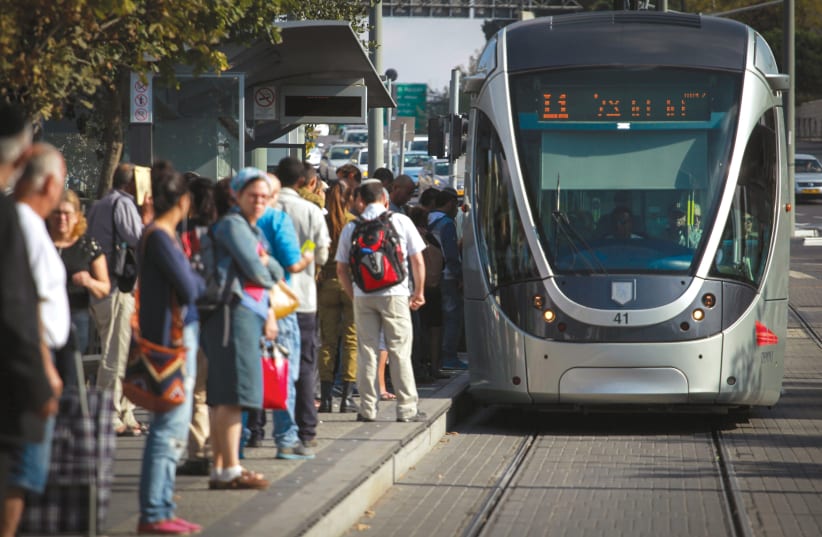Bomb shards at Ammunition Hill
Last week during excavations being carried out along the light rail route near Ammunition Hill, shards from bombs used by the Jordanian army in the early 1950s were uncovered. Archaeological rescue excavations are required by law before any infrastructure work can be carried out.
These rusty devices, some of which appeared to contain explosive components, were located in a trench which in the past connected a building that functioned as the Jordanian army’s police academy with Ammunition Hill, where one of the most bitter and fierce battles took place during the Six Day War. The shards were removed from the premises by the Israel Police Bomb Disposal Unit, which will neutralize the pieces. The shards will be displayed in the museum at Ammunition Hill as part of the exhibition depicting the battles that took place there.
Parking in Talpiot
The municipality promotes a transportation master plan that encourages residents to take advantage of public transportation as a means to relieve the city’s incredibly heavy congestion. It is thus quite surprising that the municipality has authorized the construction of numerous new parking lots.
Two of these new lots were recently built at a cost of NIS 2 million, with more than 100 parking spots each, in the Talpiot neighborhood. The two lots, which have already been cleared and marked with parking spots, are located on Pierre Koenig and Harakevet Streets. Both are adjacent to Talpiot’s bustling shopping centers, as well as residential neighborhoods. They will be for-pay lots with prices similar to the cost of parking on blue-and-white spots.
Farewell, Dalia Yaffa Maayan
An important and beloved Jerusalemite passed away this week. Dalia Yaffa Maayan was CEO and artistic director of the Train Theater from 1989 to 2018 and was also the founder of the Jerusalem International Puppet Theater Festival, the first of its kind in all of Israel. Yaffa Maayan would settle for only top-quality artistic performances.
Under her direction, the Train Theater and the International Puppet Theater received numerous awards, as well as fantastic exposure in Israel and around the world. In 2018, Yaffa Maayan received a prestigious lifetime achievement award from ASSITEJ, the International Association of Theatre for Children and Young People.
Bidding adieu to Eli Zitok
After serving nearly 30 years as municipal treasurer Eli Zitok is retiring. Shmuel Zeligman will replace him in three months.
The treasurer of any public institution is not an employee of that organization, but works independently on behalf of the Accountant-General’s Division at the Finance Ministry. This independence ensures that every move or transaction is carried out professionally and free of any political or other pressures a person in such a sensitive position might experience.
Zitok worked with a number of mayors during his tenure and weathered many storms, especially during periods when the municipality experienced large deficits.
Docu.text Festival
The National Library of Israel is once again holding its sensational Docu.text Festival on August 15 to 19, in which documentaries will be screened in the open air in the courtyard of the Givat Ram campus. Afterward, filmmakers will lead discussions about their offerings.
The documentaries that will be shown this year include films about the life of Israel Prize laureate Shoshana Damari and another about the life and work of Shlomo Bar, the founder of the legendary band Habrera Hativeet. There will also be two films about the lives and works of two of Israel’s greatest contemporary writers, Amos Oz and David Grossman, as well as a film about the life and death of Hannah Szenes.
Translated by Hannah Hochner.
